Do Protein Bars Make You Gain Weight?
Author:
Reviewed by:
(Certified Nutritionist, S&C specialist, M.Sc.Eng. Biotechnology)
Unlock your full potential by engaging with our experts and community! Have questions about your fitness journey or looking for expert advice on weightlifting techniques? Don’t hesitate — leave a comment below and Camila Parente Santos will provide a personalized answer and insights to help you reach your goals.
Torokhtiy is reader-supported. Some links are affiliate links, and we may earn a commission at no extra cost to you. See our disclosure page for details.
While protein bars may be part of a caloric surplus diet, no one food will make you gain weight. However, regular consumption of high-calorie protein bars will be more likely to push you into a caloric surplus.
In this article, we’ll be covering why protein bars may contribute to weight gain, and how to pick the best bar for you. Let’s get into it!
Do protein bars make you gain weight? Protein bars will only make you gain weight if they’re part of a caloric surplus diet. This is more likely if you’re regularly eating especially high-calorie protein bars. Choosing a lower-calorie option may make it easier to maintain a caloric deficit.
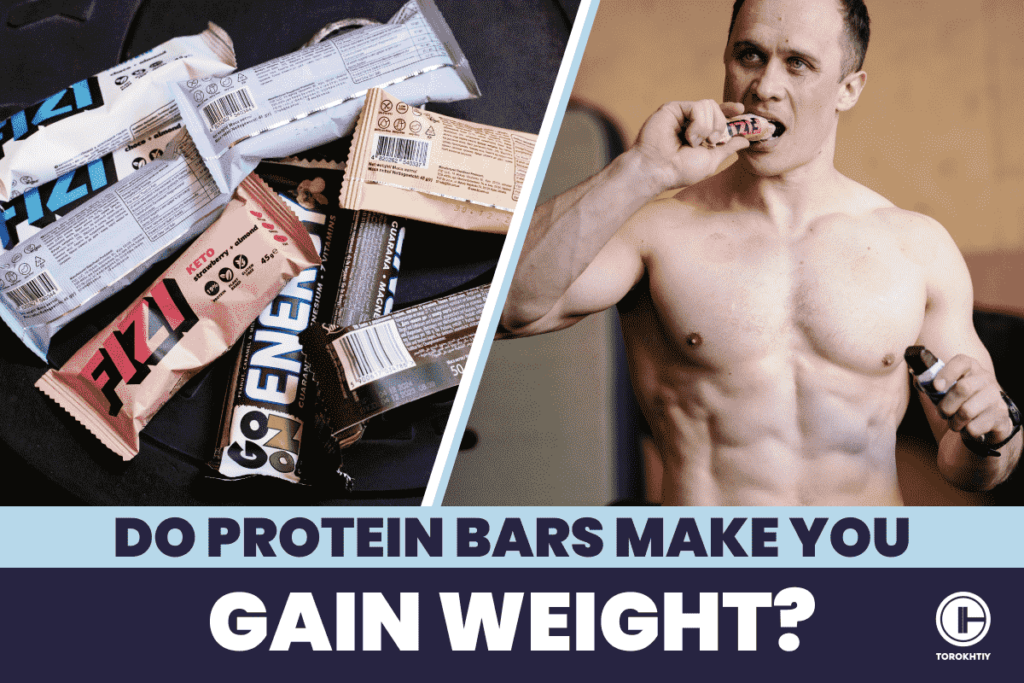
Do Protein Bars Make You Gain Weight?
So, do protein bars make you fat? In short, protein bars themselves do not cause weight gain. However, especially in the case of higher-calorie bars, they may be part of a diet that leads to weight gain.
To gain weight, you need to be in a caloric surplus, which means you’re eating more calories than you’re burning. How many calories are needed to reach caloric surplus will vary from person to person depending on age, sex, weight, exercise, and other factors.
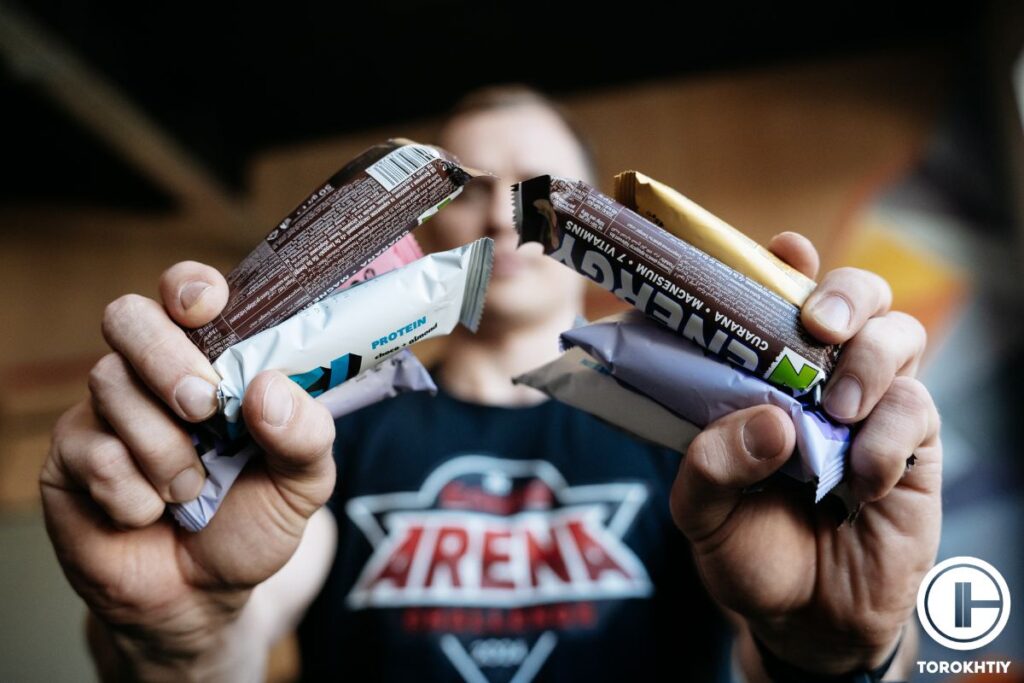
So, unless they’re part of a caloric surplus diet, protein bars on their own will not cause weight gain. However, unnecessarily eating protein bars on top of an otherwise complete diet may be responsible for weight gain.
For example, if you eat close to your maintenance calories, and you add a high-calorie protein bar on top of that every day, the protein bar would cause a caloric surplus, and thus weight gain. In this scenario, avoiding the protein bar would make weight gain less likely.
With this being said, if you enjoy protein bars, you could also choose a lower-calorie option, or alter the rest of your diet to make room for protein bars instead.
The main point here is that no single food will cause weight gain – whether it’s protein bars, chocolate, or cheeseburgers. Of course, some foods are higher in total calories, which makes them more likely to contribute to a caloric surplus.

Still, all that matters in terms of weight gain is energy balance, which is the total amount of calories you’re consistently eating and burning.
So, if you’re gaining weight while eating protein bars, first consider how many total calories you’re eating in a day. Then, consider switching to a lower-calorie bar, or changing the rest of your diet to reach maintenance calories or a caloric deficit instead.
How Exactly May Protein Bars Contribute to Weight Gain?
As mentioned above, protein bars will only contribute to weight gain if they’re part of a caloric surplus. This is more likely to happen if you’re eating more calorics than you’re burning, which may be more likely when eating a high-calorie bar, or if you’re just generally eating a high-calorie diet.
1. If You Don’t Know How Many Calories Are in Your Protein Bar
First, if you think protein bars are causing weight gain, take a look at how many calories are in your protein bar. Generally, these bars can range from ~150-350 calories per serving, which can make a meaningful difference in your total calorie intake for a day.
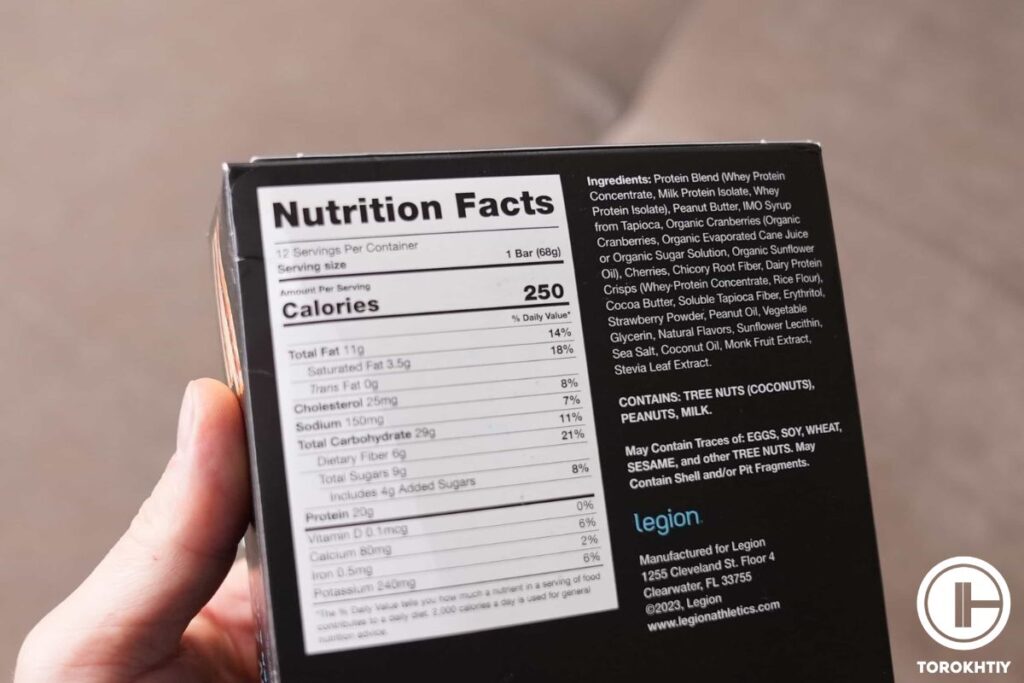
If you’re eating a high-calorie bar, it’s more likely to contribute to overall weight gain. Choosing a lower-calorie bar will make it easier to stay in a caloric deficit if weight loss is your goal.
2. If they are part of a Calorie Surplus Diet
At the end of the day, the only way a protein bar will contribute to weight gain is if you’re consistently being in a caloric surplus. While protein bars may contribute to this, the rest of your diet likely plays a larger role.
While cutting out protein bars may help you reach a caloric deficit, keep in mind that cutting out any equivalent number of calories will do the same thing. For example, avoiding sweets, or lowering portion sizes may be just as effective at reducing your total calorie intake.
Don’t blame one single food item for weight gain. Instead, consider how you can alter your diet as a whole.
4 Tips for Choosing a Lower-Calorie Bar
If you’re looking to eat protein bars as part of a weight-loss diet, some options are better than others. Below we’ll be going over some recommendations to choose a bar that’s right for you.
1. Choose a Bar with up to 200-250 kcal Per Serving
As mentioned earlier, protein bars range in calories from ~150-350 calories. We recommend staying on the lower end of this range and choosing a bar that does not exceed 200-250 calories. This will make it slightly easier to fit into a caloric deficit diet.
2. Choose a Bar that is High in Protein but Lower in Fat
Once you’ve figured out the calorie content of your bar, take a look at the macro breakdown. We generally recommend aiming for 15g of protein per bar, with minimal fats.
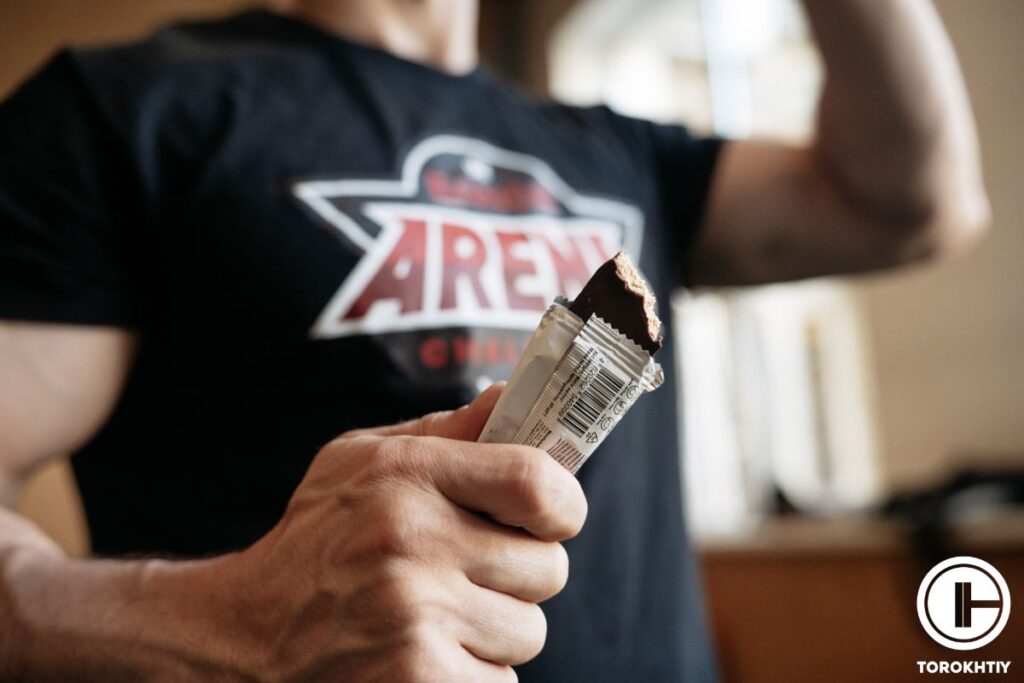
Remember that for gaining and maintaining muscle you’ll want to eat around 0.7-1g of protein per pound of body weight daily, so protein bars can help you make up a significant chunk of this number. So, especially if you’re cutting, try to prioritize the protein without too many added carbs and fats.
3. Watch the Amount of Added Sugar
Similarly, to fats, take a look at the carbs. While carbs are ok for dieting, especially in the form of fiber, you’ll want to limit added sugar, which is completely unnecessary and can add a ton of calories. Most people already get far too much added sugar in their diets, so try not to add too much more through protein bars.
4. Pay Attention to the Amount of Fiber
Finally, while you should avoid added sugar, try to get as much fiber as you can through protein bars. It’s recommended that you get 25-35g of fiber a day, with most people not eating nearly this much. So, high-fiber protein bars are a great way to help boost your daily fiber intake.
If you’re wondering “Do protein bars make you feel full?” Fiber will help you feel more satiated, making it important to prioritize if you struggle with a high appetite. On top of this, high-fiber diets are linked with disease prevention and better overall health. Protein Bar We
Protein Bars by Legion
- Supplement Type: Protein Bars
- Best For: Building Muscles, Recovery
- Suitable for Vegans: No
- Added Sugar: 4g
- Price per Serving: ~$3.33
- Servings per Package: 12
- Recommended by Athletes: Gage Clark, Grant Tinsley
If you are looking to use protein bars for weight gain, you’ll probably want a slightly higher-calorie bar than Promix, although you’ll still want to prioritize protein and fiber content. In this case, we recommend Legion’s protein bars.
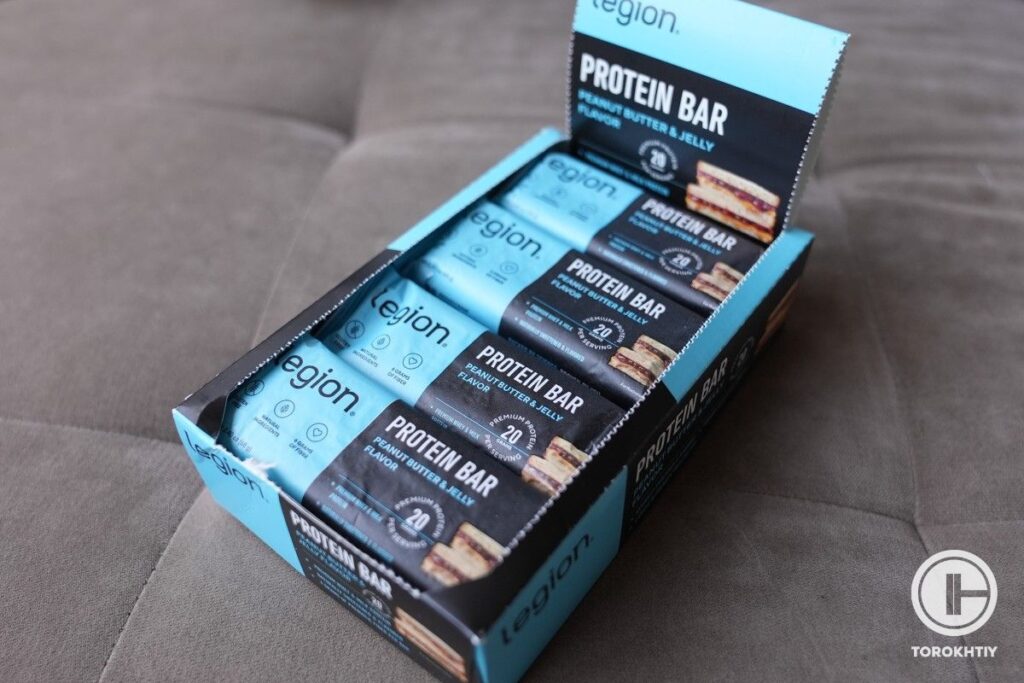
These bars contain 240 calories, which includes 20g of protein and 9g of fiber. These bars have an excellent macro breakdown for weight gain, just keep in mind that their sodium content is a bit higher than Promix. Each bar contains ~7% of your DV, which is still relatively low for a protein bar.
Legion also contains no artificial ingredients, although it only comes in 4 flavors. It’s also slightly more expensive than Promix at ~$3.33 per serving, although you can save 10-20% if you buy 3-5 boxes. With the bulk discount, they would only cost ~$2.66 per bar!
Recommend for Weight Loss – Promix Protein Puff Bars
Promix Protein Puff Bars
- Protein Source: Whey Protein Isolate, Whey Protein Concentrate
- Flavors: Vanilla, Snickerdoodle, Chocolate Chip, Mint Chocolate, Blueberries & Cream, Strawberries & Cream, Coconut (+ Variety Pack)
- Vegan: No
- Protein Per Bar: 14-15g
- Fats Per Bar: 3-4.5g
- Carbs Per Bar: 16-17g
- Fiber Per Bar: 4-6g
- Added Sugar: 3-5g
- Sugar Alcohols: No
- Bar Weight: 40g
- Price Per Bar: ~$2.42 (for 24 bar package)
- Recommended by Athletes: Odell Beckham Jr, Audrey & Nicole Nourse, Rashaad Slowley
As mentioned above, for weight loss, we recommend choosing a bar with less than 200-250 calories. This makes Promix’s puff bars a great option with only 150 calories per bar.
These still deliver a good amount of protein, with 15g per serving, as well as a solid 5g of fiber per bar, making these optimal for weight loss. It’s also worth noting they’re very low in sodium with only 2-3% of your DV, which is important to consider for blood pressure and cardiovascular health – even if it’s not directly related to weight loss.
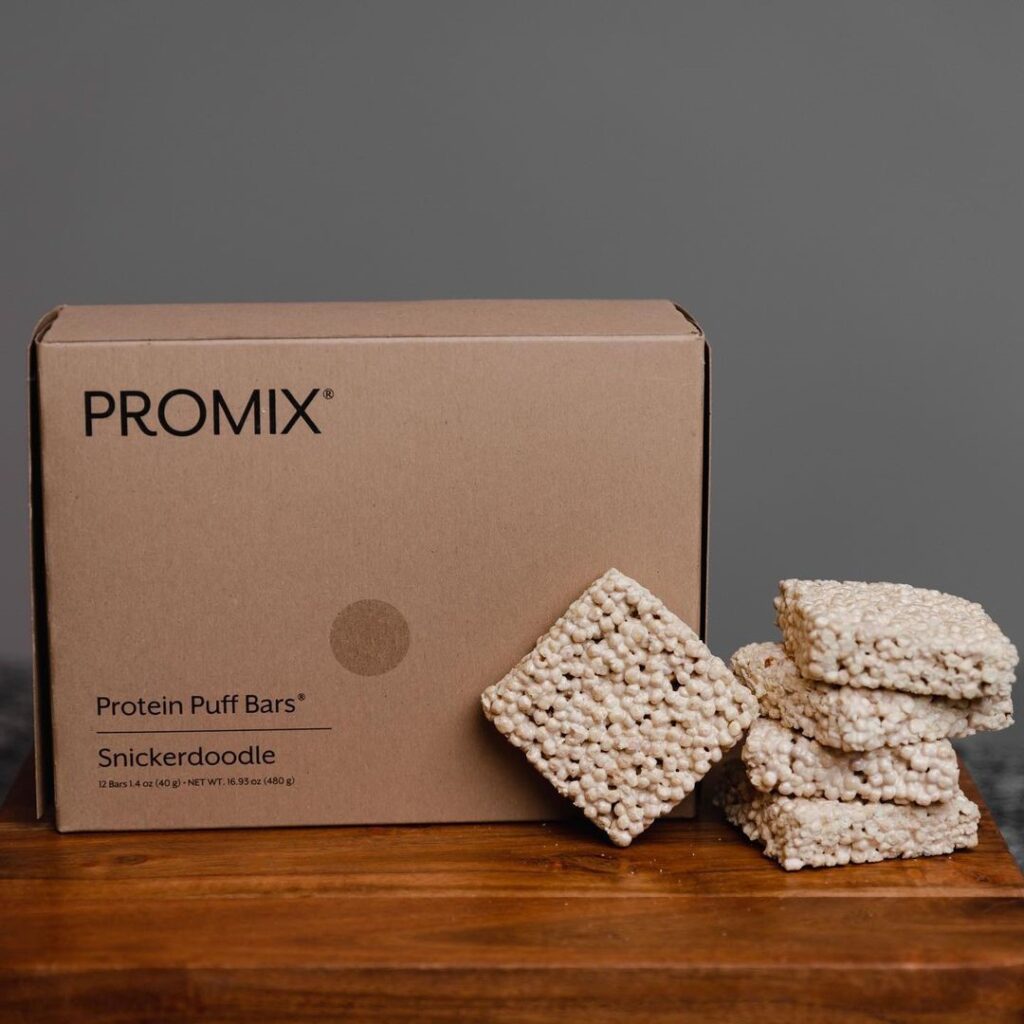
Promix comes in 8 different flavors and contains no artificial ingredients whatsoever. These bars also won’t break the bank at ~$2.42 per serving if you’re buying the larger package.
FAQ
Are Protein Bars Good for Weight Loss or Weight Gain?
Protein bars can be a part of both weight loss and weight gain diets. The main factor to consider is how many calories each bar contains, as this can affect your ability to maintain a caloric deficit or reach a caloric surplus. For weight loss, we recommend sticking with low-calorie bars that are still high in protein and fiber.
How Often Should I Eat Protein Bars?
In general, we don’t recommend making protein bars a staple in your diet. Instead, they should be reserved for when you’re busy or on the go and don’t have time to make a full meal. With this being said, they are a convenient source of protein.
So, try to limit yourself to one protein bar a day, and aim to get the rest of your protein from whole food sources instead.
Can Protein Bars Replace Meals?
Protein bars shouldn’t be used as meal replacements because they’re generally low in the vitamins and minerals that should make up a complete meal. With that being said, pairing a protein bar with some fruit or other micronutrient-dense foods can be a good way to make them more suitable as a meal replacement.
Conclusion
So, do protein bars help you gain weight?
While protein bars themselves won’t make you gain weight, if they’re part of a caloric surplus diet, they will contribute to weight gain over time. To minimize this, either choose a lower-calorie protein bar, cut them out entirely, or adjust the rest of your diet to make room for protein bars.
If you’re interested in a protein bar for weight loss, consider Promix Protein Puff Bars. For a bar that’s more suited to bulking, try Legion Protein Bars instead.
Do you have a favorite kind of protein bar? Let us know your thoughts in the comments below!
Also read:
- Legion Protein Bars Review
- When Should You Eat Protein Bars
- How Many Protein Bars a Day
- Is It Bad to Eat Protein Bars Everyday
- Are Protein Bars Good for Breakfast
- Do Protein Bars Give You Gas
References:
- Dale A. Schoeller, “The energy balance equation: looking back and looking forward are two very different views” Nutrition Reviews, Volume 67, Issue 5, 1 May, Pages 249–254. (2009).
- Everson A. Nunes, et. al, “Systematic review and meta-analysis of protein intake to support muscle mass and function in healthy adults,” Journal of Cachexia, Sarcopenia and Muscle, 13, 795–810, (2022)
- The Nutrition Source, “Added Sugar”, Harvard T.H. Chan School of Public Health, https://www.hsph.harvard.edu/nutritionsource/carbohydrates/added-sugar-in-the-diet/ (Accessed May 4, 2024)
- The Nutrition Source, “Fiber”, Harvard T.H. Chan School of Public Health, https://www.hsph.harvard.edu/nutritionsource/carbohydrates/fiber/ (Accessed May 4, 2024)
- The Nutrition Source, “Salt and Sodium”, Harvard T.H. Chan School of Public Health, https://www.hsph.harvard.edu/nutritionsource/salt-and-sodium/ (Accessed May 4, 2024)
- Photos made by Torokhtiy Media Team.
Why Trust Us?
With over 20 years in Olympic weightlifting, strength training, nutrition coaching, and general fitness our team does its best to provide the audience with ultimate support and meet the needs and requirements of advanced athletes and professional lifters, as well as people who strive to open new opportunities and develop their physical capabilities with us.
By trusting the recommendations of our certified experts in coaching, nutrition, and sports training programming, as well as scientific consultants, and physiotherapists, we provide you with thorough, well-considered, and scientifically proven content. All the information given in the articles concerning workout programming, separate exercises, and athletic performance, in general, is based on verified data.
The product testing process is described in more detail here.
Camila has worked as a Nutritionist for 7 years. In addition to being a nutritionist, she is an amateur weightlifting athlete for 2 years. Camila has experience at Flamengo’s football base and in a food supplement company and currently provides services at a clinic. At the moment she is coursing a postgraduate study in Sports Nutrition.
Reviewed by: Jacek Szymanowski
Certified Nutritionist,
M.Sc.Eng. Biotechnology
Performance architect,
Strength and Conditioning Specialist
With over 30 years of fighting experience, specialization in nutrition coaching for athletes, and expertise in metabolic health and dietary strategies, Jacek offers a comprehensive approach to optimizing your performance and well-being. Backed by a Master of Science degree in Biotechnology, Jacek remains at the forefront of scientific advancements, ensuring that his coaching is always evidence-based and up-to-date.




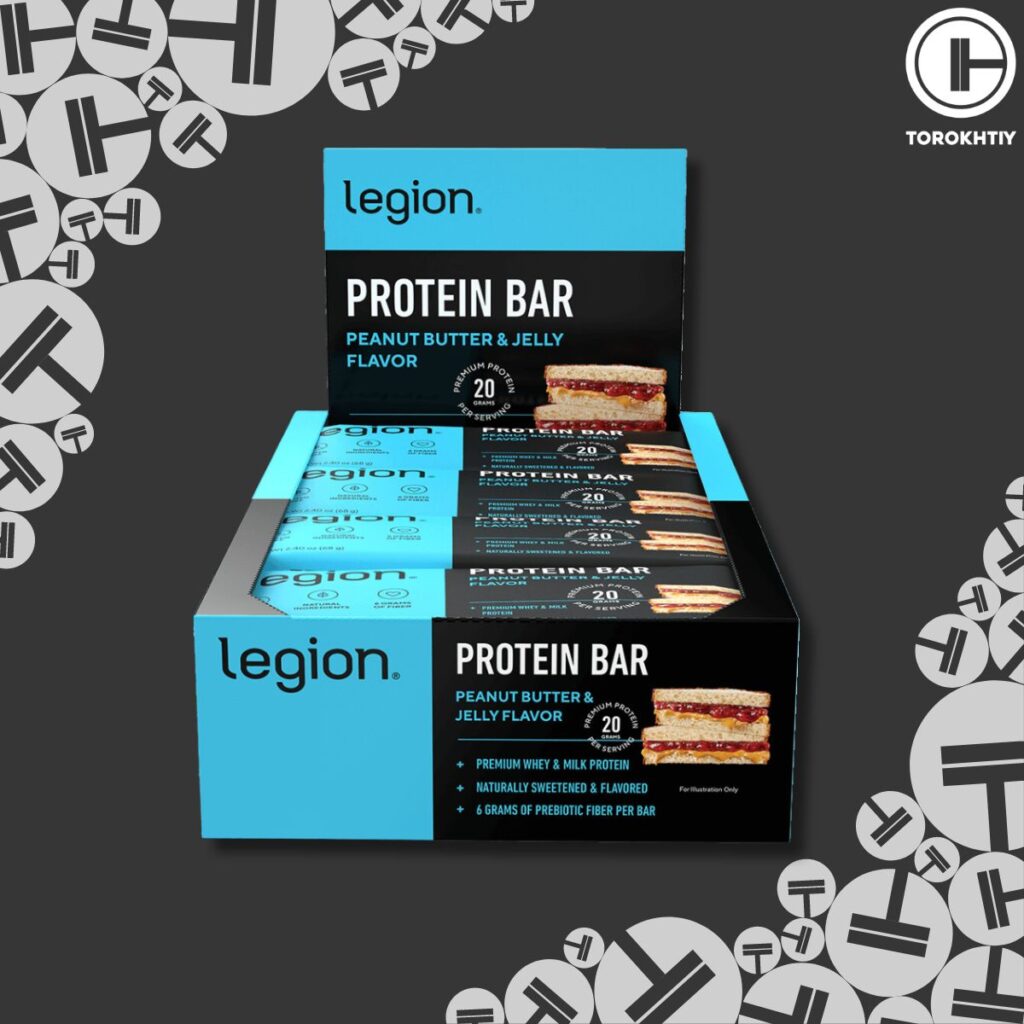
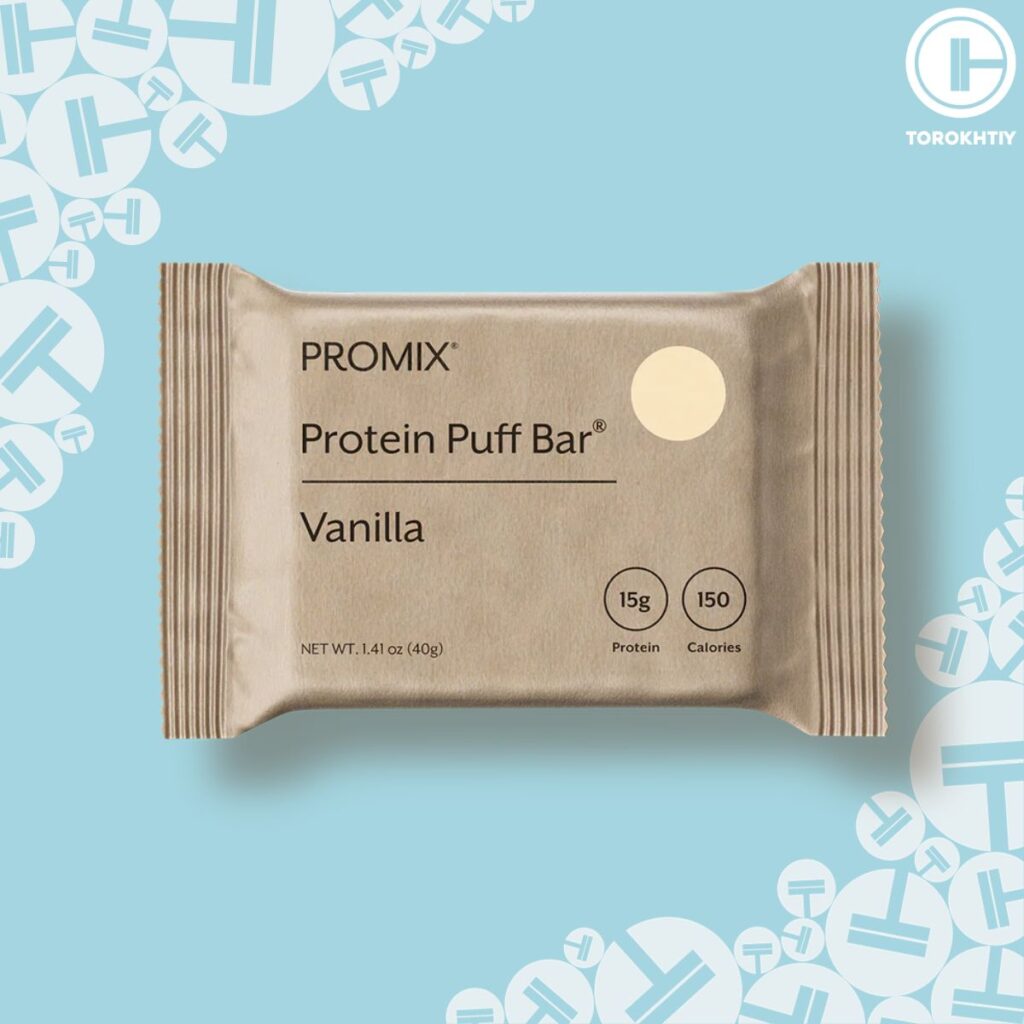
Still have questions after reading our article? Unlock your full potential by engaging with our experts and community! Don’t hesitate — leave a comment below and Camila Parente Santos will provide a personalized answer and insights to help you reach your goals.